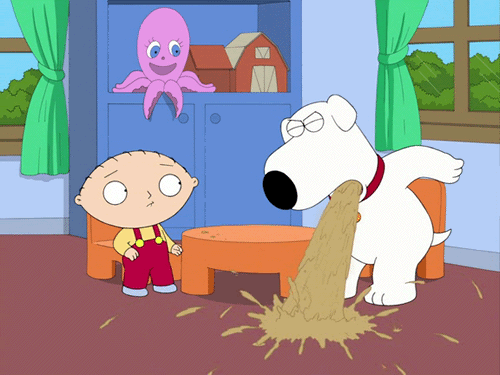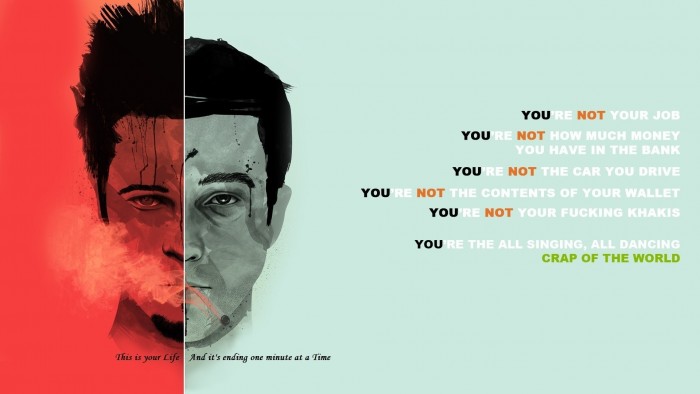
I’ll never forget the first time I watched Fight Club.
It was Friday, October 29th, 1999, as a matter of fact.
I was in awe the entire time. My girlfriend reached over and closed my mouth, as the experience was literally jaw dropping. This fascination was certainly enhanced by the fact that I had been deep into the study of Zen Buddhism over the previous two years. I distinctly recall every single scene representing a teaching from the Zen tradition.
Within the trendy Buddhist communities or hipster movie crowds, the interplay between Fight Club and Buddhism is no secret. Director David Finch and both Brad Pitt and Edward Norton have mentioned it in interviews. I have certainly spoken at length about it in the last 15 years to anyone kind (or high) enough to listen.
Now that BT and I created this WUH platform, I thought I’d throw it up here:
My intention is not to recap or review the movie in a purely sequential format. Instead, I’ll hit on a few major themes as they relate to Zen Buddhism and my particular path.
If you’ve never seen it (WTF?), then stop whatever you’re doing and watch it now… seriously.
If you saw it more than five years ago, it might also be a good idea to see it again immediately.
If you’ve seen it more recently and didn’t catch the Zen teachings embedded throughout the film, then perhaps you’ll enjoy my perspective here and then watch it again with new eyes.
Fight Club And Buddhism
The story of The Unnamed Narrator, referred to in the third person as Jack, parallels that of Siddhartha Gautama (Buddha) himself. Throughout the film Jack learns (usually painfully) about the Buddhist teachings on suffering, rebirth, ego, the illusion of a separate self, guru, sangha and Awakening.
Suffering
Although Jack appears to have his life “together” – a bachelor with a high-rise condo and a corporate job, he suffers from insomnia and a general sense of dis-ease. He’s caught up in the consumeristic culture and what he calls “the IKEA nesting instinct.” At one point he states “I would flip through catalogues and wonder, “What kind of dining set defines me as a person?”
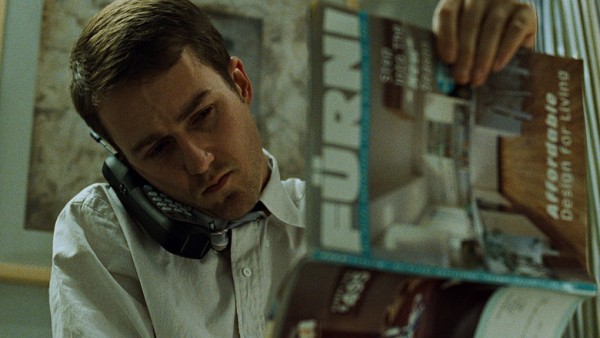
When his doctor won’t prescribe him sleeping pills, Jack gets upset and claims “I’m suffering here.” The doctor tells him to attend a support group for men with testicular cancer, in order to see what real suffering looks like.
Jack does just that, and was able to share his suffering with fellow human beings; most notably Bob, and while hugging him and sobbing “Something happened… I let go. Losing all hope was freedom.” Jack was able to sleep through the night.
Jack becomes attached to these various groups as his medicine, and all is well until Marla enters the picture.

Like Jack, she is a “faker” and a “tourist”, and she acts as a mirror for him – “Her lie reflected my lie.” Therefore, of course, he hates her, and once again is suffering.
Tyler forces the recognition that all life is suffering (The First Noble Truth of Buddhism) on Jack in the memorable soap making scene.
After applying a sloppy kiss to the back of Jack’s hand, Tyler pours lye on it and holds him down. The chemical burn in eating away at the flesh of Jack’s hand, but Tyler refuses to let go of him until he realizes that “this is the greatest moment of your life.”
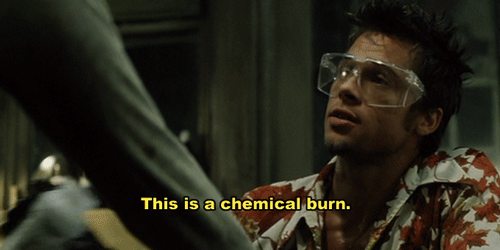
Jack attempts to distract his mind, but Tyler tells him not to handle it (suffering) “like those dead people do…. what you’re experiencing is premature enlightenment.
Instead, he implores Jack to “Give up… First you have to know, not fear, know, that some day you’re gonna die.”
Jack must accept the fact that life is suffering, and with acceptance the pain will cease.
Jack stops resisting, and Tyler pours vinegar onto Jack’s hand.
Pain is inevitable, suffering is optional.
Asceticism
Fight Club and Buddhism both start out the spiritual journey with asceticism.
Jack (as Tyler) doesn’t just give up his possessions, he BLOWS THEM UP.
Even as he is in shock of “what happened to him,” he is aware of the meaninglessness of what is now gone, “What an embarrassment, a house full of condiments but no real food. If you don’t know what you want, you end up with a lot you don’t.”
Jack and Tyler move into (squatting) a dilapidated old house in a run-down and isolated part of town. It lacks a reliable power and water supply. It’s literally falling apart. It doesn’t get much more of an ascetic environment than that.
Jack stops taking care of his body, and like some ascetic paths, actually begins to cause his body intentional harm. I would put forth that this is the primary goal of the fighting at this point on his path. He is only fighting himself, of course, as is beautifully illustrated by this clip (with his Tyler personality removed):
When Buddha first began his quest for Enlightenment, he left his family and their extravagant kingdom and lived with acestics in the forest. He gave up everything and let his body deteriorate.
Tyler echos this phase on the path:
“Reject the basic assumptions of civilization, especially the importance of material possessions…. The things you own end up owning you.”
Rebirth
Rebirth is a common theme in Fight Club and Buddhism.
Each night when Jack attends his various support groups, he changes his name tag; he becomes someone else. He is also reborn those evenings in that he is able to let go, allowing him to sleep at night.
And then there is the illustrious car scene, where Tyler is driving and lets go of the steering wheel. At first Jack freaks out and attempts to keep the car in it’s proper lane. Tyler screams at him to relinquish his illusion of control and let the chips fall where they may.
Jack eventually does let go, much like with the chemical burn, and the car crashes into a ditch. Tyler exclaims, “God damn! We just had a near-life experience, fellas!’
Ego and the Illusion of a Separate Self
The condo building where Jack lived had a tagline of “The Place to Be Somebody.” That’s some clever shit.
Both Buddhism and Hinduism recognize the Ego as a good servant but a horrible master. It can certainly assist you in getting around in this everyday relative reality. However, when it becomes the predominant perspective, it supports Maya (the veil of illusion) and the idea of a separate self i.e. dualism.
Because the Ego is always looking to support its validity, we easily succumb to the temptations to search for our identity; the ways in which we are separate from others and the world as a whole.
In Fight Club, this search for a false identity is illustrated by the way in which marketing campaigns brainwash people into believing they are somehow deficient and need to meet a fictional standard (which is impossible for the majority of the population).
In order to “Be Somebody” you have to continually differentiate yourself, and often times be in conflict with, everything and everyone that is other-than you. Of course, conflict (seemingly external, but ultimately internal) is showcased throughout the movie with literal and symbolic… fighting.
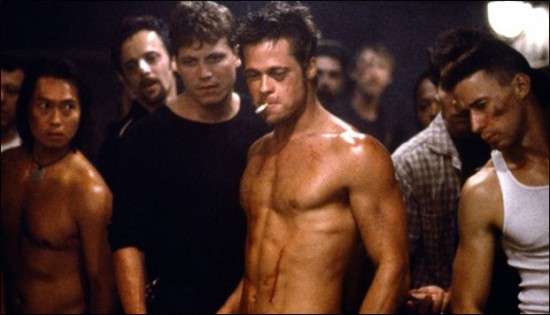
Jack is constantly fighting himself in the form of Tyler, both mentally and physically. Early in the film Tyler asks him to punch him (see video above) and they agree to do it again some time. Eventually he recruits other men who are suffering and looking for meaning in their lives. The members of Fight Club come to realize freedom from their limiting Ego identifications while fighting each other as brothers.
Jack states “You weren’t alive anywhere like you were there. Who you were in Fight Club was not who you were in the rest of the world.”
And that’s precisely the point; you weren’t anybody in Fight Club. You were able to drop the illusion of external signifiers of your identity , and as Tyler so eloquently puts it:
“You are not your job. You are not how much money you have in the bank. You are not the car you drive. You are not the contents of your wallet. You are not your fucking khakis. You are the all singing, all dancing crap of the world.”
Guru and Sangha
Tyler is Jack’s guru or teacher.
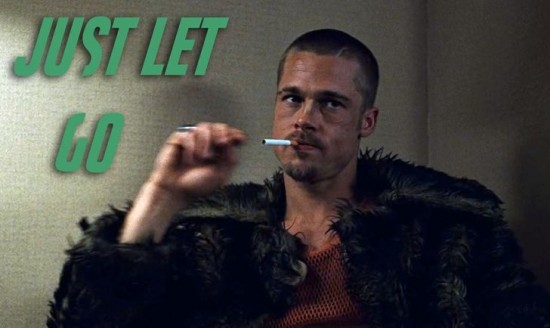
That is fucking great because he’s already a part of and “inside” him. Which represents the Hindu concepts of Brahman and Atman, the Christian stance that “the kingdom of God is within you”, and the Buddhist saying “If you see the Buddha on the path, kill him”.
But more on that last one in a moment.
Sangha is a Pali and Sanskrit word meaning a community of spiritual seekers. Tyler creates his sangha in the form of Project Mayhem. The process for acceptance is the same as many of the strict Zen monasteries in Japan. Those seeking admission are told to leave and subject to verbal and even physical abuse. After a prolonged period of time on the porch without food or water, they are admitted into training.
After acceptance, their heads are shaved, similar to Buddhist monks, to show that everyone is the same, and there is no self. This teaching is central to Project Mayhem, and Tyler preaches to them that they are “not a beautiful unique snowflake and are the same decaying matter as everything else.”
Project Mayhem has taken on the task of task of alleviating the suffering of their fellow human beings. Their modus operandi is vandalism of the symbolic structures of corporations and consumerism that keep people trapped in the illusion.
Awakening
In the final chapter of the film, Jack is in a full-on fight with Tyler (his ideal self). He believes that Tyler has gone too far, and attempts to put all the pieces together and stop the destruction of all the banks and credit card companies.
He finally comes face-to-face with Tyler again and begs him to call it all off. Tyler reveals the truth, that he is only a construct of Jack’s mind. The fight has always been the same, just as it has since the time of the Buddha. The fight is to awaken and see through the illusion created by one’s mind.
Upon realizing this truth, Jack puts the gun in his mouth, says “My eyes are open”, and pulls the trigger.
This results in the death of Tyler, and the awakening of Jack.
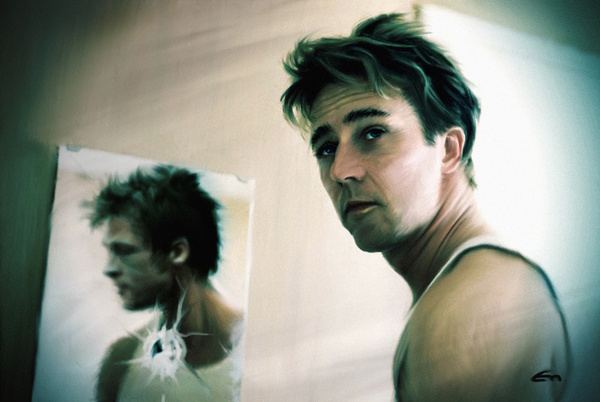
And Jack and Marla live happily ever after…
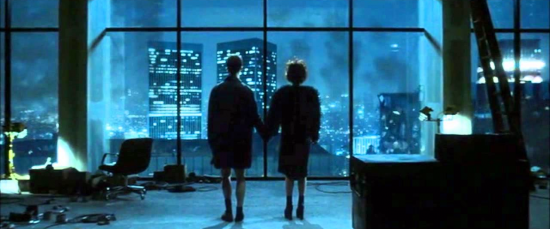
Of course, let’s not forget about the splice:
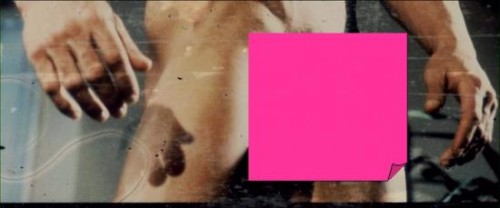
Peace Out,
Hairy Yogurt Das
NEVER MISS A POST! SIGN UP BELOW:
Love this post? Hate it with a wrathful vengeance? Either way, don’t miss the next one! Free WUH VIP means you’ll get notification and access to every new post and update: CLICK HERE

